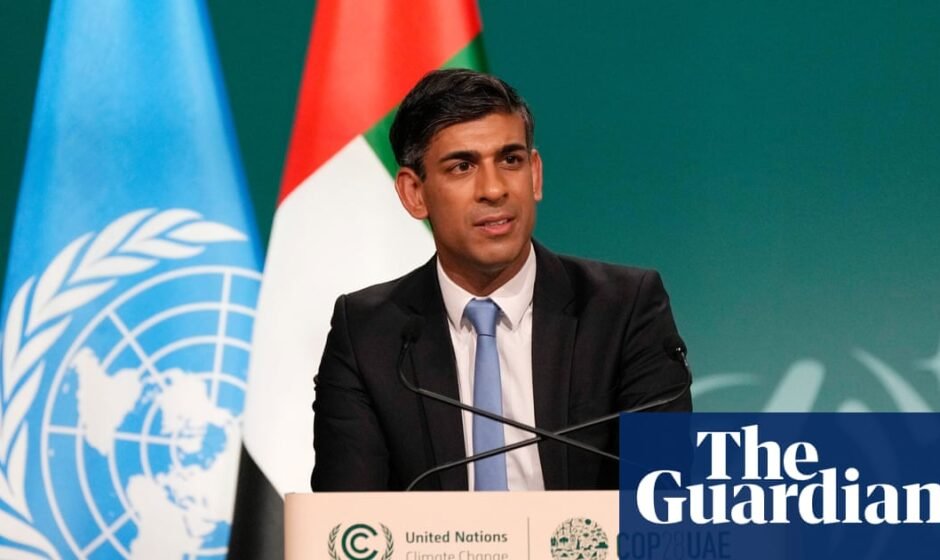The UK has been warned by the independent climate watchdog to take urgent action in order to meet its international climate commitments. The warning comes after the UK sent “mixed messages” to other countries at the Cop28 UN climate summit in December. While progress has been made in reducing carbon emissions from electricity generation, the rate at which other sources of emissions are being cut must quadruple to meet the UK’s target of 68% reductions by 2030 under the Paris agreement, according to the Climate Change Committee.
Piers Forster, the interim chair of the committee, emphasized the need to rapidly replace fossil fuels with low-carbon alternatives in order to meet the 2030 goal. He stated that the UK could set a powerful example in tackling climate change and reducing vulnerability to climate impacts.
The committee released a summary of the implications of the Cop28 outcome for the UK, highlighting the need for the government to maintain a strong presence at future climate conferences and to demonstrate even greater domestic climate ambition to reinforce the UK’s international standing. The UK was criticized by civil society leaders and many countries for its stance at the summit, with Prime Minister Rishi Sunak attending only briefly and making a U-turn on net zero policies shortly before the conference.
In September, Sunak rolled back on key climate policies, including postponing the phase-out of sales of new fossil fuel vehicles and announcing new licenses for North Sea oil and gas. These decisions were met with international dismay. At Cop28, the UK argued for the phase-out of fossil fuels, but Sunak insisted that oil and gas would continue to play a central role in UK energy for decades. The government also approved a new coalmine, while other countries were being urged to give up coal.
The head of politics at Greenpeace UK, Rebecca Newsom, criticized the UK government for its hypocrisy on climate policy. She called for immediate action to end new oil and gas production, as well as increased taxes on fossil fuel companies to generate public finance for climate action. Only then, she argued, could the UK credibly claim to be a global climate leader.
At Cop28, countries agreed for the first time to transition away from fossil fuels in energy systems, but provided no timeframe or details on how this would be achieved. The term “energy systems” was also deemed ambiguous. Activists and many countries are concerned that there may be backsliding from fossil fuel producers at future talks, seeking the loosest possible interpretation of the commitments made at Cop28.
The UK government spokesperson welcomed the recognition of the UK’s pivotal role at Cop28 and its strength in climate diplomacy. They highlighted the UK’s status as the first major economy to halve its emissions and its ambitious legally binding targets. The spokesperson also noted the significant investment in the UK’s clean energy sector, which has resulted in 40% of electricity now being renewable compared to just 7% in 2010, bolstering energy security.




